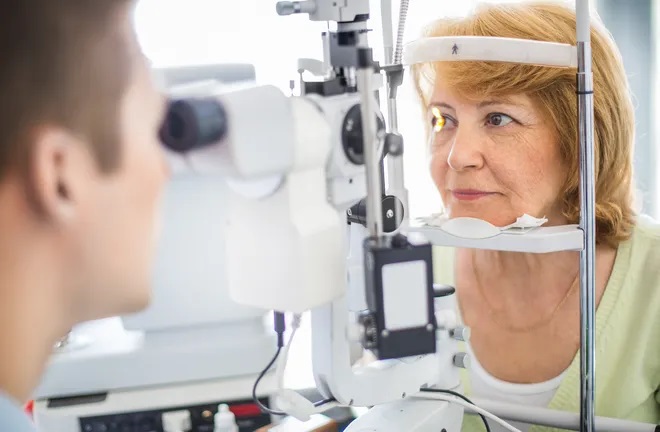
16, Jul 2025
July is healthy vision month, an excellent time to focus on making healthy choices to protect eye health and overall health. Chronic conditions like diabetes and hypertension can also increase the risk of certain eye diseases.
More than 23 million adults ages 18 and older have never had an eye exam. By 2030, it is projected that:
Among children younger than 18 years of age, 6.8% have a diagnosed eye or vision condition.
Eyes help you enjoy breathtaking nature, dive into your favorite books and recognize your loved ones from across the room. Your eyes work hard for you every day, so treat them well.
Here are the daily habits you can follow to keep your eyes healthy and strong.
Some eye diseases will not show significant symptoms in the early stages or may slowly develop over time. Regular eye exams can also help you know your eyes and your baseline. Getting a routine eye exam is important so that changes to the eyes not seen by the naked eye can be noticed and treated as soon as possible.
Whether you work or play, wearing protective glasses to protect your eyes from ultraviolet rays is essential. Consult your eye provider to find the perfect sunglasses that block out nearly 100% UVA and UVB radiation. Remember, even on cloudy days, UV rays can still affect the eyes, so don't forget your eye protection on those days. Use safety glasses while playing sports or using tools. Properly storing and cleaning your contact lenses is essential if you use them.
Regular physical exercise can help with weight maintenance, but also helps lower the risk of health conditions that can affect our vision. When you exercise, your whole body gets healthier, including your eyes.
There are plenty of ways to get active, no matter your interests. Aiming for approximately 10,000 steps daily, doing regular household chores, dancing, or any movement that increases your heart rate, is a movement that will have benefits. Whether doing a workout class or walking the local nature trail, just 30 minutes of daily movement can make a massive difference for your health.
Cigarette smoking can affect every part of the body, including the eyes. Quitting smoking may reduce the risk of cataracts and macular degeneration.
Eating a healthy diet translates to the health of your eyes. Challenge yourself to add a colorful rainbow of fruit or vegetables to every meal. Don't forget foods high in omega-3 fats, such as fish and nuts. Consuming foods containing lutein, vitamin C, vitamin E, beta-carotene, and zinc can also improve or maintain eye health. Red bell peppers, leafy green vegetables like spinach and kale, almonds, flax seeds, and legumes are great daily additions.
Constant use of phones, computers, and tablets can fatigue your eyes. Take breaks from screen time to prevent eye strain.
Regular eye check-ups are important, so don't wait until it's too late. Many eye diseases don't show signs until they've caused damage.
Your eye doctor has special tools to help detect problems early, even ones you can't feel or see. They also recommend ways to treat the problem if they find something wrong. See your primary care doctor today to be referred to an eye specialist.
During this healthy vision month, keep the momentum going and consult your primary care provider for basic eye screening.
Dr. Sue Mitra and her staff strive to offer their patients the best care, advice and services available in the medical field with the goal to keep patient healthy & happy.

Dr. Sue Mitra is board certified in international medicine. She is seen here with a Cologuard, which is a noninvasive colon cancer screening test. (Photo by: Tim Shortt/Florida Today)